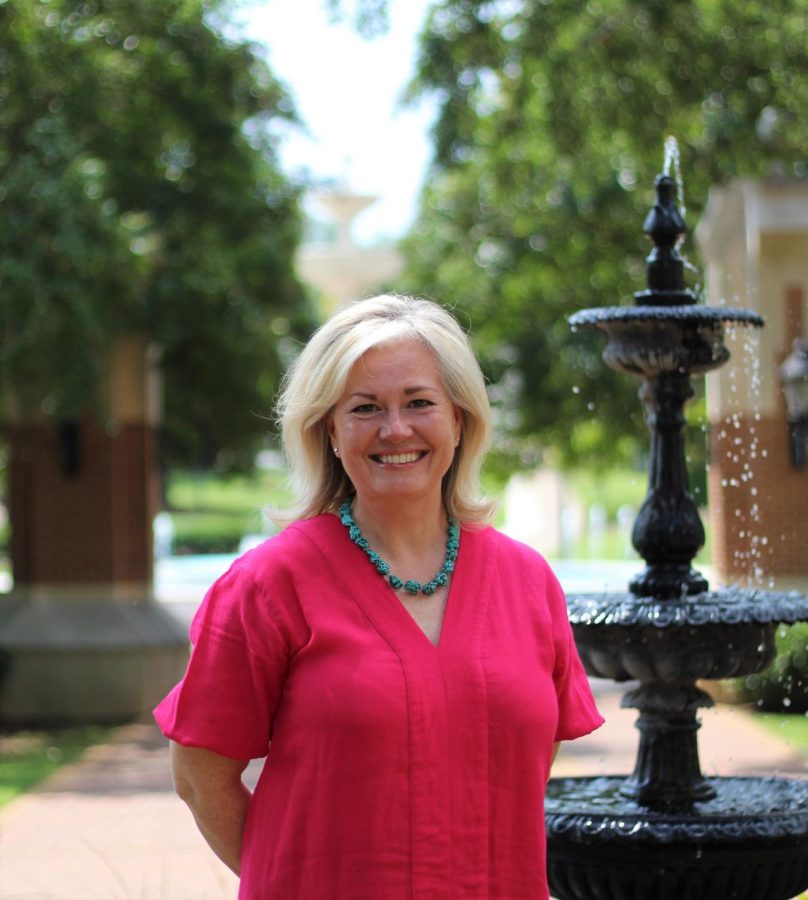Interim Title IX coordinator appointed
September 8, 2022
The Office of Student Affairs named Samantha Smith interim Title IX Coordinator over the summer. As interim coordinator, Smith only holds the position while UNA undergoes the hiring process for a full-time position.
Former Title IX Coordinator Kayleigh Baker resigned in April 2022, leaving the position vacant. As of August 2022, Baker still receives monthly payments of $7560.36 from the university according to university spending.
Smith earned a Bachelor’s (B.S.) Degree from Hollins University in 1992 and a Juris Doctor (J.D) degree from Samford University’s Cumberland School of Law in 2004.
Smith is a Florence native and currently works for Bishop Colvin, a law firm that primarily represents public school boards, as well as state and local government offices in Alabama. Bishop Calvin has clients state-wide but focuses mostly on the Birmingham area.
Smith’s primary focus is public education from kindergarten to twelfth grade. She previously worked at the firm from 2004 to 2011 before working at Ogletree Deakins. Ogletree specializes in employment law. Many of Smith’s clients were higher education institutions, which began her experience working with post-secondary institutions. She returned to Bishop Colvin in 2018.
The close proximity of UNA to her home is a welcome convenience for Smith, as she returned to the Florence area in 2021 to care for her parents. She works for Bishop Colvin remotely.
Smith’s other experience includes nearly a decade working at Capitol Hill. She served as a staffer for the House of Representatives and Senate. She first worked as a secretary for late Senator Howell Heflin (D-AL) in 1993. While her career plans for Capitol Hill were originally murky, she ended up becoming Heflin’s scheduler until his retirement in 1997. She still feels a fondness for the Heflins and says that the work environment made the team feel like a family.
Following Heflin’s retirement, Smith worked for former Alabama Congressman Robert E. “Bud” Cramer, for whom Cramer Way is named. She worked for two years as his scheduler and office manager. She returned to the Senate for Senator Diane Feinstein (D-CA) as a scheduler. After working for Feinstein, she attended law school at Samford.
Her choice to go to law school was rooted in homesickness. She spent seven to eight years on Capitol Hill and decided she needed additional education. The skillset she developed in D.C. was somewhat limited when translated to the Alabama workforce, especially since Smith didn’t want to work for the Alabama government.
Smith comes from a family of lawyers; her father served as circuit judge in Lauderdale County and her mother also practiced law in Florence. Smith chose Cumberland School of Law over University of Alabama’s School of Law due to its size and proximity to family.
She also has extensive experience in Title IX law, thanks to her work at Bishop Colvin.
Tile IX is a federal law that prohibits sex discrimination in federally funded educational institutions. Since Title IX was originally introduced to encourage equality in sports, it has become most associated with athletics. Title IX also applies to employment and the educational environment as a whole. In its fifty years of existence, it has remained a source of both support and criticism.
Title IX currently operates under the 2020 amendments. Presented by the Trump administration, Title IX was amended to strengthen the protection of sexual assault survivors.
According to the Department of Education, the amendments “codify that sexual harassment, including sexual assault, dating violence, domestic violence and stalking, is prohibited under Title IX.” Title IX also ensures that those accused of sexual harrassment will be given due process. The amendments provide clearer procedures for the accused.
“The implementations of [the amendments] in 2020, I think, were designed to try to ameliorate the investigation process and also afford additional due process for those who have been accused,” Smith said. “[The definition of sexual harrassment] was put into place for the first time, as well as the particular processes for investigation and decision-making.”
Title IX is ever-evolving. Most recently, the Biden administration has proposed amendments to include protection for LGBTQ+ students and employees who face discrimination on the basis of sexuality or gender identity. These amendments are currently in the 60 day public comment period, wherein the public has the power to submit opinions and complaints regarding new regulations. The period ends on Sept. 12. After, the Dept. of Education will evaluate the comments and make changes appropriately. The amendments would not be issued until approximately August 2023.
“The procedures that are currently in place are a little bit cumbersome,” Smith said. “[Title IX] is 2,000 pages of legislation. [The Dept. of Education] recognized that. They’ve recognized the distinction between a student that’s in elementary or secondary education and a student that’s in post-secondary education. They are focused on trying to make it more user friendly and make it a simpler process.”
The Biden administration also plans to broaden the definition of sexual harrassment beyond what the previous amendment did. The term would broaden to any form of harassment that is sex-related–whether it apply to LGBTQ+ populations or sexual misconduct.
The university Title IX office faced backlash in the spring following a series of stories published in the Flor-Ala. Smith’s hope is to be available and responsive for those who have questions about Title IX, as well as people who want to report. Cases that are not fit for Title IX will be referred to Student Conduct or whichever service is best fit for their report.
As of Aug. 23, Title IX has two pending incident reports. Incident reports are not necessarily Title IX violations, but they are reported violations. They are yet to be determined to be Title IX. The office makes a point to reach out to the subject of the report to inform them of the supportive measures offered.
“As you can imagine, it is a very emotionally taxing time,” said Dr. John Gurley, University Investigator and Title IX Deputy Coordinator.. “My goal is to treat [the victim and the accused] with dignity and respect and to prepare an independent report that can be presented to a panel so they can make an appropriate determination.”
Given how many new students have arrived on UNA’s campus, Title IX is making a point to show the resources they have available. Informing freshmen on consent, reporting and the purposes of Title IX is important for both Gurley and Smith. A total of 48 presentations were given at SOAR regarding Title IX.
“If students are transferring in from another institution, we don’t know what kind of education or background or training they got at their prior institution,” said Dr. K.C. White, Vice President of Student Affairs..
Smith knows Title IX extends past complaints and the adversarial process. She sees it as somewhat of a starting point for further concerns. Her interest in Title IX branches from her law experience working with educational institutions.
“Title IX has become more prevalent at all levels of education,” Smith said. “It’s one of many statutes that I have to advise my clients on and work within. When the new regulations came out in 2020, it became a primary focus for every public school in the state. A large percentage of my day is talking to Title IX coordinators.”













